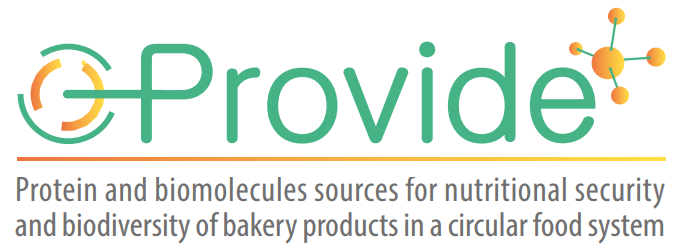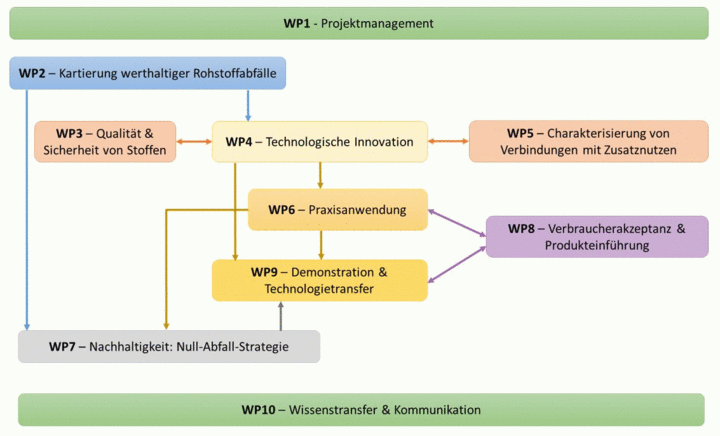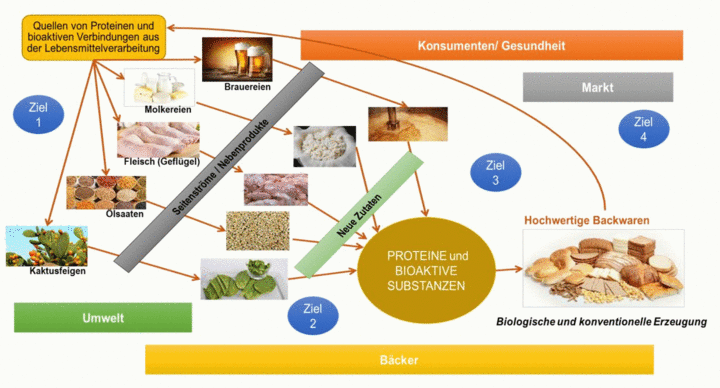
Provide – Circular Economy for Food Systems
The world population is expected to reach 9 billion people by 2050. As a result, food intake and the demand for high-value protein sources is increasing worldwide and traditional harvesting methods are suffering from depletion of natural available resources. Along with the increasing food request, food production is affected by significant rates of food losses that represent useless resource consumption and significantly contribute to waste generation.
Therefore, sustainable agriculture will have to ensure higher, more stable and more eco-efficient production, more nutritious food and better quality final products using less land, fewer chemicals and other inputs. The implementation of resource-efficient circular economy principles across the whole food system can contribute to reduce its environmental footprint and minimise food losses and waste, which are estimated by the FAO to account for 45% of the global waste.
PROVIDE focuses on the valorization of food transformation industry by-products for use in bakery production. This will be based on "green" innovation processes, which will also use materials from organic sources and consequently the resulting new products can be marketed as "organic".
The overall objectives of PROVIDE are:
Identify by-products rich in nutrients and bioactives and investigate their nutritional profile
Valorize wastes and by-products and increase the efficiency and sustainability of conventional technological processes usable during bakery production
Promote circular Food Systems and models for Responsible Research and Innovation
Define strategies to put the newly developed products into the market, facilitate technology transfer and promote consumer acceptance
PROVIDE will focus on the valorization of sidestreams from dairy, oil and brewery productions. Bioactive components (e.g. fatty acids, carotenoids, polyphenols, tocopherols etc.) will be extracted in pilot plants using green technologies, and will then be further used in newly developed bakery products. The consumer acceptance of the new products will then be evaluated, and the technologies will be transferred from laboratory to industrial scale.
Six research facilities from Italy, Norway, Romania, Morocco and Germany are involved in the PROVIDE project:
TUM Chair of Analytical Food Chemistry, Germany
ENEA (Italian Agency for new Technologies, Energy and Sustainable Economic Development), Italy
IBA (National Institute of Research and Development for Food Bioresources), Romania
Chouaib Doukkali University, Morocco
NTNU (Norwegian University of Science and Technology), Norway
BioRomania (Association of Operators in Organic Farming), Romania
The work-plan of PROVIDE is organized in 10 Work Packages (WP). The Chair of Analytical Food Chemistry will coordinate PROVIDE and leads WP1 (project management). Furthermore, it is responsible for WP3 (Quality and Safety of Sources), where by-products and final products will be evaluated in terms of quality, nutritional value and food safety. The Chair of Analytical Food Chemistry will further contribute to WP2 (Mapping of Sources), WP4 (Technological Innovations), WP5 (Characterization of health enhancing properties), WP6 (Put into practice), WP7 (Sustainability), WP8 (Consumer Acceptance and Products) and WP10 (Dissemination and Communication).
Im

